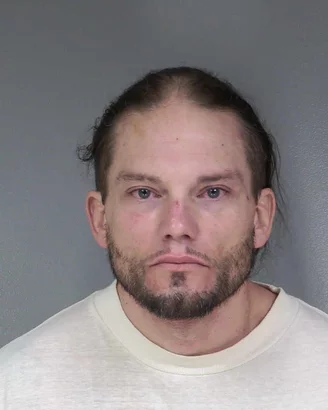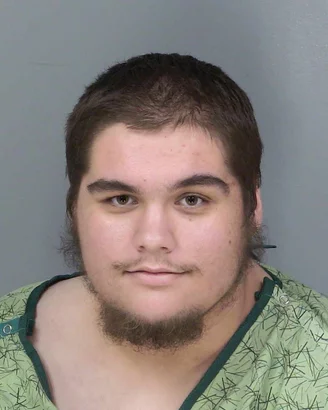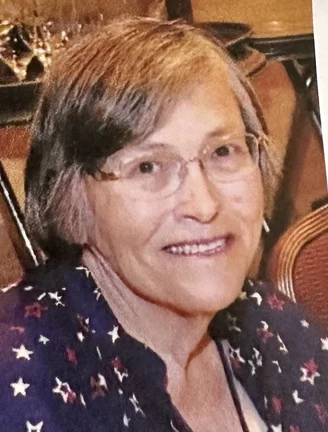EUREKA SHOOTING: Suspect in Custody After Shooting on California Street Last Night; San Francisco Man Booked on Attempted Murder Charges, Eureka Police Say
LoCO Staff / Thursday, May 11, 2023 @ 11:46 a.m. / Crime
Press release from the Eureka Police Department:
On May 11, 2023, at approximately 12:25 a.m., the Eureka Police Department (EPD) received a report of an argument followed by the sounds of gunshots in the 1800 block of California Street. Our dispatch center received a call from the victim in this investigation who stated a suspect had fired a handgun at them, while they were engaged in a verbal altercation, shooting out the back window of their vehicle. No one was injured during this incident. This was not a random act of violence and was targeted only at the victim.
After the shooting, the victim began following the suspect and provided vital information about the suspect’s vehicle and direction of travel. A county-wide “be on the look out” was issued for the suspect and vehicle.
At approximately 12:39 a.m., a Humboldt County Sheriff’s Deputy located the vehicle in the Cutten area and attempted an enforcement stop. The vehicle failed to yield and a pursuit of the vehicle ensued. The pursuit traveled back through Eureka and concluded near Broadway and McCullens Avenue, when the suspect’s vehicle became disabled. The suspect was taken into custody without any further incident.
The suspect was identified as James Clayton Atkins, 39 years old, from San Francisco, California. Atkins was transported and booked at the Humboldt County Correctional Facility on two (2) counts of Attempted Murder. This is an ongoing investigation and additional charges are expected to be filed against Atkins.
BOOKED
Today: 5 felonies, 13 misdemeanors, 0 infractions
JUDGED
Humboldt County Superior Court Calendar: Today
CHP REPORTS
Us101 N / Sr200 Onr (HM office): Traffic Hazard
ELSEWHERE
Governor’s Office: Governor Newsom signs bills further cracking down on hate and antisemitism in California schools
County of Humboldt Meetings: Oct. 8, 2025 - Humboldt Housing and Homelessness Coalition Executive Committee meeting
County of Humboldt Meetings: Sept. 24, 2025 - Humboldt Housing and Homelessness Coalition Executive Committee meeting
KINS’s Talk Shop: Talkshop October 7th, 2025 – Bill McAuley
UPDATE: APD, Humboldt County Mental Health Responded to Domestic Disturbance in Valley West Wednesday Night
Stephanie McGeary / Thursday, May 11, 2023 @ 11:37 a.m. / News
PREVIOUSLY:
- ”Arcata Courtyard Circle barricaded subject incident update on conditions: The situation is still ongoing,” Scanner Traffic Indicates.
###
After receiving a call at around 7 p.m Wednesday night about a domestic disturbance at the apartments on Courtyard Circle in Arcata, the Arcata Police Department responded to find an individual who was having a mental health crisis and threatening to kill himself.
This morning Lt. Todd Dokweiler of the APD gave the Outpost an update on the situation, saying that the individual has stabilized and that APD is “periodically checking in” on the individual. In addition to APD officers, a representative from Humboldt County Mental Health responded to the scene Wednesday night, Dokweiler said. No one entered the residence, but after talking to the individual through the window until about 1 a.m., responders determined that the individual had stabilized, and that the best course of action would be to leave the scene.
Residents in the area were not evacuated, Dokweiler said, but were made aware of the situation and advised to leave the area if they felt it was necessary. Neighbors and the property manager have also been advised to contact APD if there are any additional disturbances. Responders are also in touch with the individual’s family, Dokweiler said.
At one point, there was a report of the individual wielding a kitchen knife, but there were no firearms reported, and there were no reported injuries of the individual or anyone else. Once it is deemed appropriate, the individual will ultimately be taken into custody for further evaluation, Dokweiler said.
Eureka Police Officially Arrest One Suspect in April Assault, Police Chase That Resulted in Harris Street Shootout
LoCO Staff / Thursday, May 11, 2023 @ 10:23 a.m. / Crime
PREVIOUSLY:
###
Press release from the Eureka Police Department:
On May 10, 2023, Jesse Chakchak Widmark was arrested and booked into the Humboldt County Correctional Facility. This arrest resulted from his involvement in the April 18th critical incident that occurred at the intersection of Harris and Dolbeer Streets in Eureka.
Jesse Widmark was arrested for the following charges:
- Attempted Murder of A Peace Officer, Brandishing a Firearm in the Presence of a Peace Officer, Felony Obstruct/Resist a Peace Officer, Robbery, Assault with a Deadly Weapon Other than a Firearm and Child Endangerment.
Brandon Widmark, the second suspect in this investigation, is still receiving medical treatment and will booked upon his discharge from treatment.
CONVERSATIONS: San Marino Week Continues With a Visit From Paolo Rondelli, the Former Ambassador to the United States
LoCO Staff / Thursday, May 11, 2023 @ 7:03 a.m. / Elsewhere
###
Benvenuti a tutti! Today on San Marino Conversations, we are honored to welcome Paolo Rondelli, the enclave’s first ambassador to the United States!
Rondelli has lived a fascinating life, as his Wikipedia page indicates — just for instance, for six months last year he served as one of two S.M.’s Captains Regent, becoming the first and only openly gay head of state in the modern era — and today he’s here to tell the Outpost’s John Kennedy O’Connor (on assignment) about the diplomatic life, San Marino’s role on the international stage, and whether or not he regrets getting out of dodge before President Donald Trump made the scene.
Video above, rough machine transcript below.
###
JOHN KENNEDY O’CONNOR:
Well, welcome to another San Marino Conversation — not a Humboldt conversation today — and I’m very pleased to say that we’re joined today by Paolo Rondelli. Did I get that right? Because I have a terrible Italian accent.
PAOLO RONDELLI:
No, no, no, that’s perfect.
O’CONNOR:
And Paolo used to be the ambassador for San Marino to the United States. Right. Which I think is fascinating, the idea that this very small micro-state has such a wonderful representation in the international scene. How does this come about?
RONDELLI:
Well, first of all, I have to underline the fact that I was the first ambassador to the U.S. So, one of my duties was also to open an embassy, a chancery in Washington, D.C. So, it was something very big for a small country, but for each country, but for a small country it’s a little bit more. So, it was absolutely great. What year was that?
O’CONNOR:
What year was that?
RONDELLI:
2007. So I started with my tenure in 2007, presenting my letter of credence to President Bush. So I spent the last year and a half under his presidency and then I spent eight more years as ambassador to the US with the Obama administration. So I finished my tenure October 31st, 2016. So just four days before the election, the presidential elections to move in Paris as permanent representative to UNESCO for UN environment. So this wonderful agency talking about cultures, scientific issues and things like that. But well, Washington DC was a wonderful period, was really a wonderful period because it was a way to build something up, was the beginning of the relationship between our two countries and on a level of diplomatic representation until that year, until 2007, we were on a consular level only. So we started and was a big adventure to me. So it was really beautiful.
O’CONNOR:
Great. Now why was the US chosen to be one of the initial embassies for Samaritan? Because there aren’t very many, are there, around the world?
RONDELLI:
No, first of all, we have an embassy in Rome, we have more than one embassy in Rome because we have Italy, Holy See and Food and Agriculture Organization and all the international organizations. So we have more than one embassy, we have two ambassadors in Rome. That is since decades. After that we opened UN in New York and some others. At present we have very few stable embassies, so full-time open embassies. Obviously US and UN in New York. Vienna. I have met the ambassador in Austria. Elena. Yes. She is great. Then we have Brussels for the EU. Yes, exactly. Brussels has been open for many years.
O’CONNOR:
That’s an interesting relationship because San Marino is not in the EU technically, but in effect you are.
RONDELLI:
It’s a little bit more complex. So we are not part of the European Union but we have an agreement, a cooperation agreement since 1991 and on an economical level and on some specific items like food and agriculture. So then we are part of the Schengen territory.
O’CONNOR:
But you also use the euro.
RONDELLI:
We use the euro since the very beginning due to an agreement, a specific agreement. And we have our own euros so we are able to produce euros too. But we are not EU members. We are under a negotiation of a treaty for not a full adhesion but a kind of association agreement. So we will remain a third part but with some specific duties and some specific obligations, specific I think points in favor.
O’CONNOR:
Now your role in the US, I’m fascinated, I mean the US is one of the largest countries in the world, one of the top 10. Here’s San Marino which I believe is the fourth smallest, is that correct? Or the fourth smallest in Europe?
RONDELLI:
The third.
O’CONNOR:
The third, there you go. What is the role, I mean, how do you interact with this monolithic government and this monolith of the United Nations? Although I know that wasn’t your role, but they’re being combined now.
RONDELLI:
Obviously, being an ambassador of a small country and being our representation there, it’s more than very big embassies like United Kingdom or France with a lot of diplomats. I was at the very beginning the only one, the only diplomat in the US, so you have to walk a lot, buy a certain number of shoes because you have to walk a lot, knock a lot of doors and trying to introduce yourself, to introduce your country that no one knows, but it’s quite important to be on the scene. I remember I had a wonderful professional relationship with a colleague, she was the ambassador of Liechtenstein, another micro-state in Europe, so we were facing more or less the same problems. When you are alone in the Soviet countries, obviously your government has to give you some specific mandates on some specific issues because you can’t face all the arguments. The week is just seven days or more.
O’CONNOR:
I just need to ask, was it disappointing not to be part of the Trump administration? Or did you think, thank goodness I got out before it was too late?
RONDELLI:
Obviously, as an ambassador…
O’CONNOR:
You have no opinion.
RONDELLI:
No opinion. But I was happy to move to Paris after nine years and a half in the US. So I moved to Paris for three years as ambassador and permanent representative to UNESCO. It was really nice, Paris too. So obviously I have part of my family based in New York so I’m still quite often in the US. I have friends there so I’m traveling and I touched also the Trump administration.
O’CONNOR:
Paolo, it’s been lovely to meet you. It’s really interesting to know about how this tiny country interacts with the wider world. It’s really genuinely fascinating. Thank you for joining us in San Marino for a San Marino Conversation. And thank you for joining us and hopefully join us for more San Marino Conversations this week. Bye-bye.
RONDELLI:
Cheers!
OBITUARY: Sue Patterson, 1947-2023
LoCO Staff / Thursday, May 11, 2023 @ 6:56 a.m. / Obits
Sue Patterson died peacefully in her sleep on the
morning of May 5, 2023 after a brief illness. Sue was
born on July 28, 1947, in
Eureka. She was
predeceased by her parents, Harvie and Mae Patterson, her sister Ann Klint,
and her brother Cy Patterson. She is survived by five nephews and a niece: Mark
Krikava, Michael Patterson
(Chelsea), Dennis Krikava
(Janet), David Patterson
(Sydney), Matt Klint (Mary),
and Jennifer Klint & great-
niece Annie-Mae McCarty
(Charlie) and great-nephew
Patrick Patterson.
Sue attended high school in Watsonville and went on to graduate from the University of California Santa Cruz with a degree specializing in Spanish literature, during which time she spent a year studying in Spain.
After college Sue worked at Dominican Hospital in Santa Cruz and continued her education at CSU San Jose studying Library Science. Sue was a voracious reader and her home was always lined with bookshelves.
Sue moved back to Humboldt in the late 1980s and worked at Redwood Memorial Hospital in Fortuna and St. Joe’s Hospital in Eureka until retirement.
Sue was well-known as an animal lover. She spoiled her pets outrageously and was never without a cat or dog in her life.
Since moving to Fortuna Sue became an active part of the community and made many friends. In fact, she never met a person or an animal that didn’t fast become her friend. In addition to many social activities such as Bunco, book club, and daily visits to the dog park, Sue was an active member of the Daughters of the American Revolution and the Quilt Guild and sang in the choir at the Fortuna United Methodist Church.
Sue loved to cook and bake and enjoyed providing treats to her friends, family, and their dogs. She was famous for her Pecan Tassies, Snickerdoodles, & dog cookies.
Sue’s family would like to thank her many friends for their support and help in her final difficult years: Norma Allman, Deanne McCall, Toni Smith, neighbors Larry and Razia, and Max Schoenfeld to name a few.
We would also like to thank the Humboldt organizations that helped with Sue’s care: Redwood PACE, Agape, and Humboldt Hospice.
A celebration of Sue’s life is being planned and will be announced at a later date.
###
The obituary above was submitted on behalf of Sue Patterson’s loved ones. The Lost Coast Outpost runs obituaries of Humboldt County residents at no charge. See guidelines here. Email news@lostcoastoutpost.com.
(VIDEO) Coast Guard Flyboys and Flygirls Deploy Helichopper to Rescue People on Both the Lost Coast Trail and a Cruise Ship Monday
LoCO Staff / Wednesday, May 10, 2023 @ 6:24 p.m. / Emerald Triangle
Press release from the U.S. Coast Guard:
Coast Guard helicopter aircrews medically evacuated two people during two separate search and rescue cases off the Northern California coast on Monday.
U.S. Coast Guard Sector Humboldt Bay watchstanders received an agency assist request from CALFIRE to medically evacuate a female hiker suffering from symptoms of dehydration and sickness near Shipman Creek around 5 p.m.
Coast Guard Sector Humboldt Bay watchstanders then coordinated the launch of an MH-65 Dolphin helicopter aircrew around 5:40 p.m.
The aircrew arrived on-scene, hoisted the female hiker into the helicopter, and transferred her to emergency medical services at Shelter Cove around 6:30 p.m.
At approximately 7:30 p.m., Sector Humboldt Bay coordinated the launch of an MH-65 Dolphin helicopter aircrew to medically evacuate a passenger suffering from symptoms of a stroke aboard the Canadian cruise ship, Norwegian Sun, off the Northern coast of California.
Around 8 p.m., the aircrew arrived on-scene, hoisted the Canadian passenger from the Norwegian Sun, and began the transit to St. Joseph’s Hospital.
The aircrew arrived at St. Joseph’s Hospital around 8:40 p.m. and transferred the passenger to awaiting emergency medical services.
Both individuals are reported to be in a stable condition at this time.
HUMBOLDT TODAY with John Kennedy O’Connor | May 10, 2023 (San Marino Week, Day 2)
LoCO Staff / Wednesday, May 10, 2023 @ 5:34 p.m. / Humboldt Today
HUMBOLDT TODAY: A community garden in Arcata is again the victim of vandalism; a company set to develop offshore wind in our region makes a sizable financial commitment to a local nonprofit; plus, what does John think about Croatia’s Eurovision entry this year? Find out in tonight’s online newscast.
FURTHER READING:
- CONVERSATIONS: Civil Grand Jury Foreman John Heckel on the County’s Sorry State of Child Protective Services, Election Integrity, Becoming a Grand Juror and More
- RWE, the German Company Planning Offshore Wind Development Here, Announces $10K Annual Donation to Food for People
HUMBOLDT TODAY can be viewed on LoCO’s homepage each night starting at 6 p.m.
Want to LISTEN to HUMBOLDT TODAY? Subscribe to the podcast version here.



